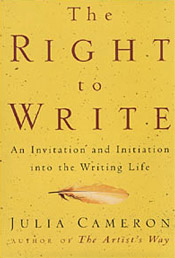Drumming up a story
During our visit to Rabat, the capital city of Morocco, we went to see part of the old fortified city. As we alighted from our bus this colourful character came towards us banging on his drum. This was obviously part of the experience of visiting this spot, but our guide didn’t explain why the drummer was there. He was also trying to drum up business, but I was too mean-spirited to give him a tip. Seeing he knew I had taken a photo of his, he was probably a little miffed that I didn’t give him a tip.
Writing prompt: use your imagination to tell the following:
- What is this man’s story?
- Where has he come from, and what is his background?
- Why is he dressed in this way?
- What significance has the drum?
Freshly baked bread
“I do not have to eat freshly baked bread to love it. The scent is nearly as delicious, nearly as much the satisfaction as the thick slice of bread slathered with butter and homemade apricot jam.”
Julia Cameron in The right to write.
One of my most enduring memories of freshly baked bread occurred during a holiday in the Flinders Ranges in South Australia. My wife and I, accompanied by our daughter and her little dog, headed off to one of our favourite camping spots towing our caravan. After a long day of travelling we set up camp overlooking the magnificent southern edge of Wilpena Pound. We could look out of the window or sit in the sunshine next to our van and admire the full beauty of the range.
Because we didn’t know how often fresh bread was available in the small park shop, we decided to take our bread making machine with us. To wake up to the smell of freshly baked bread in the small confines of the van was like sleeping in a bakery. Then to top off the experience we had homemade apricot jam to enjoy with the fresh bread. I think we probably had homemade peach and pineapple jam as well. Heaven.
As I remember, there was a downside. On the first day I came down with a heavy cold. I survived – probably only because to the fresh bread baked every day.
WRITING PROMPTS
- Write about your encounters with fresh bread.
- Write about baking homemade bread in your home when you were a child.
- Write about special food you enjoyed on a holiday.
- Write about a holiday spoiled by illness.
Writing is like breathing
“Writing is like breathing.”
Julia Cameron in her book The right to write.
Breathing is essential to life. That’s given – try existing without breathing and you’ll see what I mean.
Likewise, I agree with Julia Cameron. I am at my most alive when I am writing, carving words and ideas out of the air, my imagination shaping them into sentences, stories, poems and articles. Many times the writing becomes so automatic, so involuntary that, like breathing, I am unaware of the processes at work: I just write.
When this happens I find it exhilarating. The words flow, the ideas come galloping into scene after scene and before too long I discover I’ve written 1500 or even as much as 3000 words in a day (though a figure that high is rare). I’ve even had occasions when the characters take over, demanding things happen their way – forget that there is an author at work. They almost demand to be heard. I find this fascinating. It’s almost like the oxygen I’m breathing in has given my characters life. (There is a spiritual analogy embedded in that last sentence, but I won’t go there.)
This all sounds very exciting, but the reality is that I also have days when I am drowning. One of the hallmarks of drowning is a lack of air. When the ideas don’t come- or won’t come, when searching for the right words – or sometimes, any words – is like gasping for air, the sense of drowning is very real. Like a drowning man, the panic soon sets in and flailing of arms is replaced with frantic grasping at anything. The swimmer quickly sinks into despair, the shore beyond reach. The writer wonders if the story, poem or novel will ever be written.
How to prevent drowning: learn to swim. No guarantee, but it minimises the risks.
How to prevent writer’s panic: learn to write, and keep on writing. The more I write, the easier it becomes. The more I write, the more the ideas and words flow. It is never easy and it is hard work. Swimming isn’t easy either; one has to work hard at it – and learn to keep swimming if you don’t want to sink.
Keep writing.
And it might also help to keep breathing too.
What I am reading
I hope that my regular readers have not deserted this site entirely. I’ve been preoccupied with many other matters over the last six months which has left little time or energy for this site, nor for my other sites Trevor’s Birding and Trevor’s Travels.Sadly, I’ve also had very time for writing in my preferred areas of children’s novels, short stories and poems.
My work situation has changed since Christmas, so I am planning on getting back to posting articles, stories and poems here on a far more regular basis. I also have plans to include articles about writing, book reviews and writing hints and ideas. Like I have in the past, I’ll also be documenting my journey and experiences as a writer: the trials, the difficulties, the joys and the frustrations. I hope I can also share a few news items about my publication successes.

The Right to Write
by Julia Cameron.
In November I attended the book launch of the annual anthology of the writing programme of Tabor Adelaide where I did my Masters a few years ago. I had three poems published in this volume, and I also did the editing of the poetry section. The guest speaker who launched the anthology read an excerpt from Julia Cameron’s book The right to write: an invitation and initiation into the writing life (Penguin Putman). On returning home I ordered my own copy.
This book consists of many short chapters, each one a reflection on some well accepted writing practices – and then urging the reader to reassess and then adopt a different approach. Each chapter ends with practical writing activities to develop new skills. I’ve only read a few chapters so far, but if the first half dozen are any indication, this is a valuable resource. I intend over coming weeks to share some short quotes from this book, commenting on them from my own experiences.
Good reading. Good writing.

